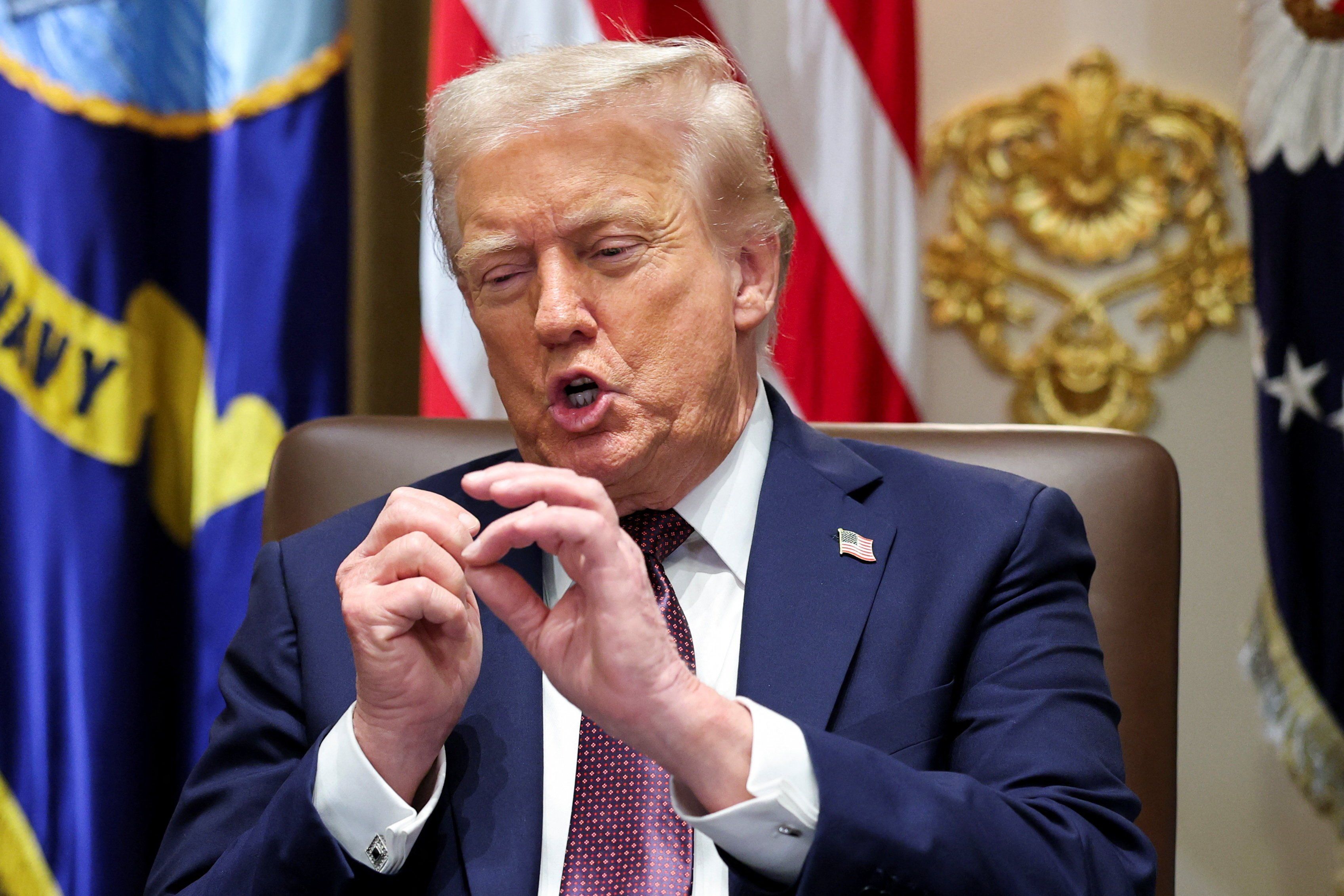U.S. President Donald Trump gestures during a cabinet meeting at the White House in Washington, D.C., U.S., August 26, 2025. REUTERS/Jonathan Ernst
Today the Senate Banking Committee will consider Trump’s nomination of economic adviser Stephen Miran to be a governor of the Federal Reserve. Trump would like to get Miran confirmed in time for the Fed’s rate-setting meeting in two weeks.
Meanwhile, a federal judge has asked lawyers for Lisa Cook, the Fed governor whom Trump is trying to fire, to file more briefs as she pushes back against Trump. The law says a president can fire a member of the board only “for cause,” which normally means professional neglect or malfeasance. Trump alleges that Cook has committed mortgage fraud, but she has not been charged with any crime or convicted of any wrongdoing.
If Trump succeeds in getting Miran confirmed and firing Cook, he would be on track to have a majority on the Fed board. He’ll get a chance to name a new chair in May when Jerome Powell’s term ends.
Given everything else Trump is doing, why worry about the Fed?
Control over the Fed will give Trump power over the central bank’s decisions on interest rates.
He says he wants to lower borrowing costs — making it cheaper for America to pay interest on the national debt, for businesses to get loans, and for Americans to buy homes.
But if he controls the Fed and reduces borrowing costs, lenders will correctly assume that the Fed can no longer be relied on to control inflation. As a result, lenders will charge more to lend money — a higher “risk premium” — whether lending to the United States or to businesses seeking commercial loans or individuals getting mortgages.
In other words, if Trump controls the Fed, he’ll end up with the opposite of what he says he seeks. Longer-term interest rates will rise (it’s already starting to happen). And as longer-term rates rise, the stock market will fall (put on your seatbelts, folks).
So maybe lower interest rates isn’t the real reason Trump is so intent on controlling the Fed. What else could be on his mind?
With control over the Fed, Trump also gets the Fed’s power to oversee Wall Street — making the rules that big banks must follow to operate safely and manage risks appropriately. The Fed is also a lender of last resort during crises.
And why does he want these things? Trump operates on such a different plane of policymaking that it’s often hard to understand what he’s doing and why. Let me try to put it together.
Think of all his moves — whether controlling the Fed, or occupying American cities, or unleashing ICE on immigrants, or imposing import taxes (tariffs) on American consumers, or attacking American universities and museums, or shaking down CEOs, or punishing his “enemies” — as motivated by an unquenchable thirst to accumulate bargaining power over every other actor and institution in the world.
The more bargaining power he has, the more he can extort from them the things he most cares about: money and subservience.
We are dealing with a sociopath who is continuously seeking new ways to force others to reward him with personal wealth and total domination.
Money is not enough. He relishes the submission of others. He craves obsequiousness, groveling servility, and a----kissing. He detests criticism. He wants to get even. He wants a Nobel Prize and his face carved on Mount Rushmore.
His goal is to achieve, or be perceived to have achieved, omnipotence.
Trump’s art of extortion involves finding things that other powerful actors and institutions depend on — research funding for Harvard (and other universities); access to the American market for Canada (and other countries); avoidance of environmental regulations for Big Oil; access to the government for Big Law; federal funding and freedom to operate without federal troops for mayors of “blue” cities and governors of “blue” states; supplies and components from abroad for big corporations.
Then he uses that dependence as pressure points to extort more money and submission.
Control over the Fed gives Trump way more tools for extortion. With control over interest rates, he can get America’s biggest corporations and the world’s biggest nations to bend to his will. With control over the big banks, he can get Wall Street to submit to his whims.
Normal policy debates are over what’s good for the public (hence “public” policy). But we’re no longer in a world of normal policy debate. The central question inside the Oval Office — and among Trump’s enablers in the White House and Congress — is what will enrich Trump and strengthen his dominance over everyone and everything else.
The most important public policy debate we ought to be having is how to peacefully and lawfully rid America and the world of this menace.
NOW READ: We ignore this psychologist's warning at our peril
Robert Reich is a professor of public policy at Berkeley and former secretary of labor. His writings can be found at https://robertreich.substack.com/
